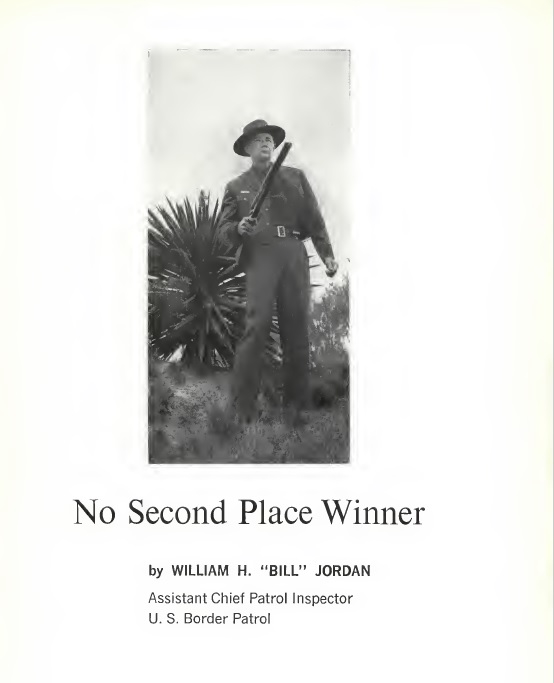
“Local ordinances, State (sic) laws, and departmental policy may in some cases differ from illustrations in the film.” – Disclaimer in the beginning of Officer Down Code Three.
Found on YouTube in the Periscope Film account, Officer Down Code Three is a training film, released in 1975, an adaptation of the book written by Pierce R. Brooks. Of course, it’s of little relevance today because we know so much more, right?
Or perhaps we’ve simply forgotten. I saw the “okay boomer” comments that cops sure were lazy and careless in the 1970s. They didn’t look back on the Officer Down Memorial Page or they’d note that officers were apparently “lazy and careless” in the 1960s, the fifties, and before – back into the 19th Century. Of course, it’s easy for the keyboard commando to judge those who’ve gone before us.
As an occupational group, we got heavily invested in what came to be known as the officer survival movement after fiascos like Newhall, amplified by events like Norco, FBI-Miami, North Hollywood and more. Now the mating cry of the clueless is “militarized police” or “cops assume the risk.” The latter is something not uttered when a violent criminal offender, already dying of an opioid overdose, passes away in custody; his name is stenciled onto the brain buckets of seven-figure game players.
A look back, taken honestly with intent to learn, can provide lessons helpful for today.
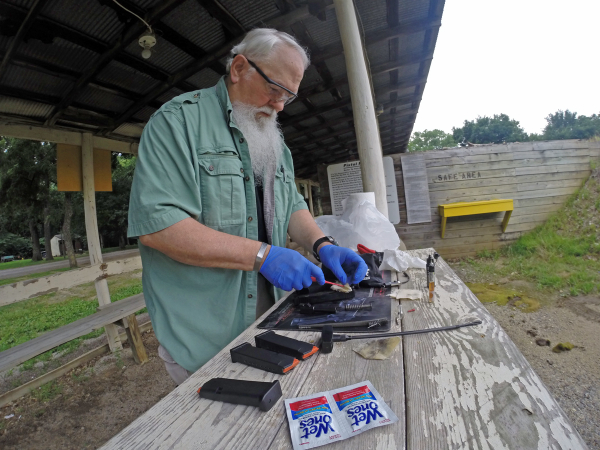

There is a laundry list in the book of things not to do, replicated in the film, with examples. They may seem silly, dated or poorly acted out – they almost lost me at the appearance of the ‘chalk fairy’ mucking about a homicide scene in the opening case – but the gold is there for the picking. Karl Rehn has applied the lessons to the non-sworn citizen. They certainly do apply.
Let’s look at the negative rules and make positives. For example, “maintain proficiency with and take care of weapons, vehicle and equipment.” I was in an agency where a local dirt track guy was the ‘maintainer’ of vehicles (sic). We worked it out as best we could.
You maintain proficiency through study, practice and maintenance – of skills and gear.
Properly search and cuff all prisoners; I’ve heard all the stories and made accommodations – at my own risk – on rare occasion. The high-risk search was for anyone who’s getting into the car; I allowed no one in – not to write a ticket – unless it was a trip to the cage. Taking a handcuffing instructor class isn’t expensive – it’s one day long and you can afford to take it. You’ll get more cuffing practice and procedure in eight hours than you’d get in ten years on the bricks.
Get enough sleep; you may have to forgo that side hustle or the fine looking (person) that you’d like to be seeing. Going on the job fatigued and falling asleep can be terminal. It has been in the past and it’ll happen again. Don’t let it be you.


Relax when you’re in a covered environment and not before. Relaxing too soon, dropping your guard and firmly placing your skull into your keister is a quick way to get measured for a wooden suit. It doesn’t have to be the stone killer/high octane felon that catches you looking away or being distracted. A hype with a two-digit IQ would find it easier than stealing candy from a baby. Keep your head out – and up.
Anticipate danger – Brooks calls it “missing danger signs.” An adjunct to other rules, like relaxing too soon, it’s not noticing preattack behaviors, not seeing what’s wrong in “your right world.” If something appears wrong, don’t just bumble around; ask yourself why? Time for cover, to call for help, for rapid movement out of the area until you sort it out.
Gain situational dominance – in positioning. Brooks refers to “not taking a bad position.” Yeah. Don’t do that. Put obstacles between you and others – in a potential contact weapon assault, that buys time. If it’s a gun assault, it can give you something to get behind. When was the last time you practiced working corners, doors, using the physical layout to provide some protection from being seen – and being punctured?
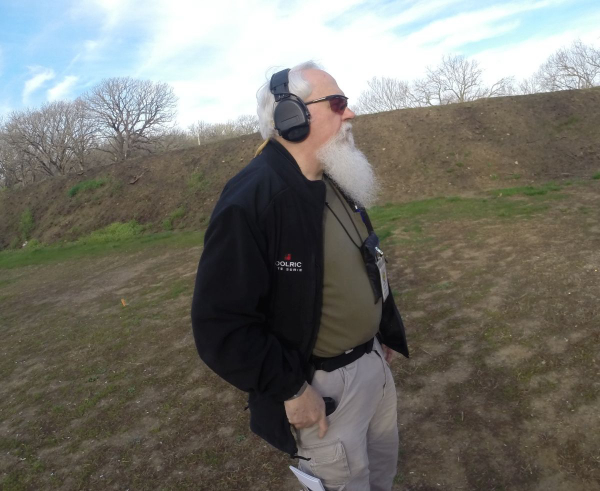
The hands kill. Watch them. If someone has his hands in his pockets, the appropriate verbalization (please, not challenge; it’s not a duel) is “DON’T MOVE!” Again, I plead with you, do not say “let me see your hands.”
If you see their hands then, when you expect them to move, you’ll see what comes out of the muzzle of the gun that’s in that pocket with their hands … and you can’t stop it. You’re a fraction of a second away from extinction.
Control distance. The tendency, as well I know it from experience, is to close with and cower the suspect. It’s a sucker play. I learned that too. It’s a bluff and it’ll end badly for you some day. Cpt. Brooks calls it “tombstone courage,” an appropriate moniker; rushing in where angels fear to tread. When was the last time you participated in scenario-based training? Recall the take-aways from that training?
When you deal with living, moving, thinking people in a dynamic environment you learn it’s anticipating then reacting, setting yourself up for success – and setting them up to fail. That’s the game.
Keep your eye on the ball. Brooks calls it preoccupation – thinking about inconsequential BS when there’s nothing between you and the problem but air. In the old days, it was thinking about activities on days off or the argument you had at home; today, people live with their faces buried in electronic media.
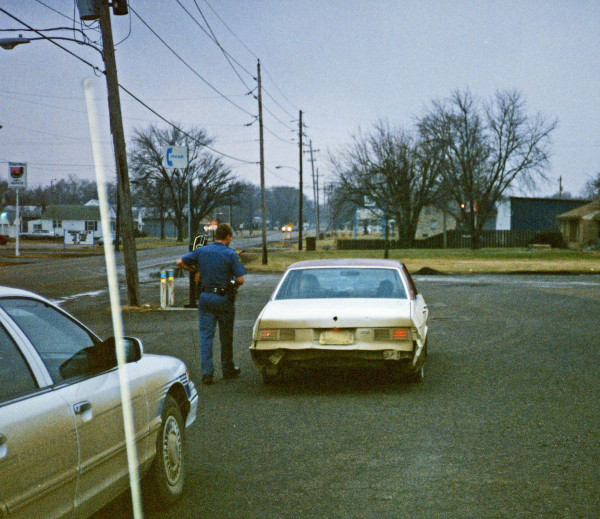
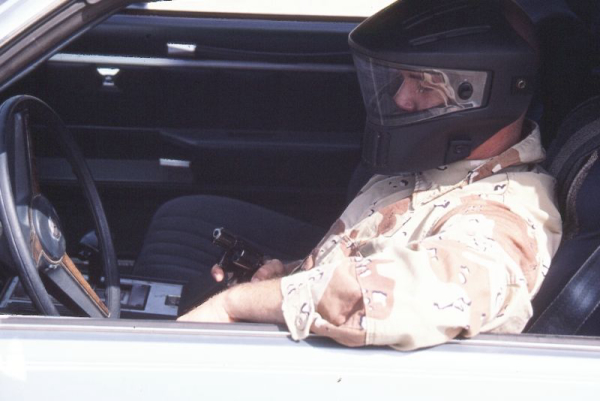
In the words of the noted philosopher Chris Rock, “Turn that @#$% off.” I well remember a dispatcher going high order on me after a call where I was facing a domestic abuser SOB by myself in a venue otherwise crowded with ‘no-shoot’ targets that were moving about. I shut my portable radio off after I’d asked for help.
It seemed a long time, but the place was quickly crowded with uniform members of service – from other agencies – and the situation resolved. I told my concerned radio operator later that the only thing separating me from the potential incoming gunfire was air – and talking to someone on a radio was really something that could wait.
Finally, “you’re not exempt from the newspapers – nor am I.” (Jeff Cooper). This can happen to any of us – and it does. Apathy isn’t a winning strategy. Being a fatalist merely gets your mindset to give up. “It’s not going to happen to me” may, in the long run, be true. It’s something you can consider on your deathbed when you’re my age.
Until then, ask “Could someone take me today?” and “Will I let that happen?”
The old lessons are hard won. Don’t disgrace the dead by ignoring them. Embrace them.
Keep that damn wall bare.
-- Rich Grassi
